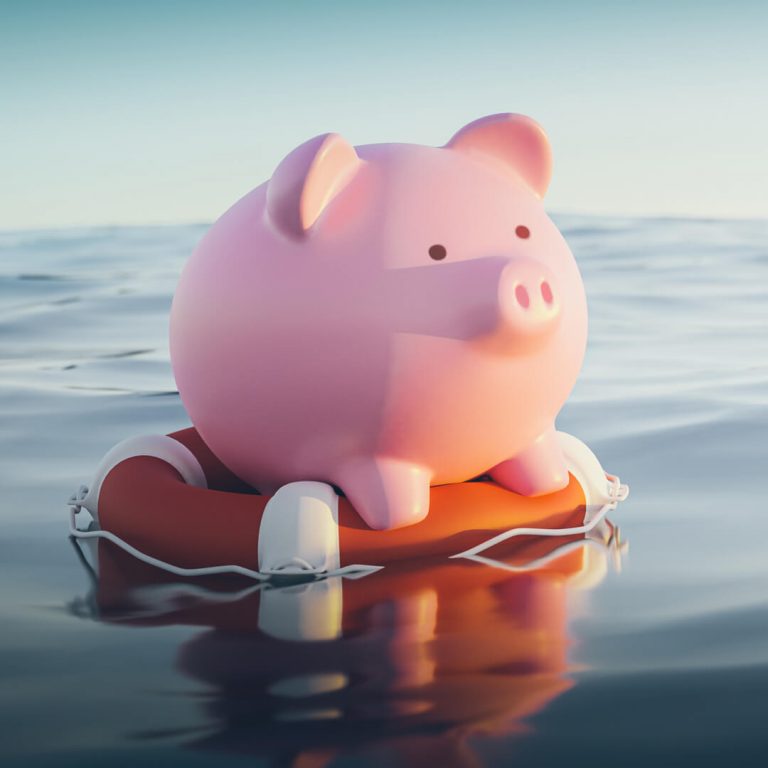Financial experts say everyone needs an emergency fund stocked with enough cash to cover three to six months’ worth of living expenses in case of an unexpected money crisis. Despite such warnings, a Federal Reserve survey indicates that just over half of U.S. adults at the end of 2020 had a rainy-day fund that would last three months. While that percentage has risen steadily since the Great Recession, it still leaves the other half of the population in a real bind if faced with one of the following scenarios.
1. Losing or Leaving a Job
When things don’t work out with your employer, whether by your choice or not, it typically takes time to find a new position. In a slow job market, your search could drag on for much longer. And all the while, your mortgage or rent is still due along with all your other bills. In the Fed survey, 45% of laid-off workers said they couldn’t pay their bills or wouldn’t be able to if a $400 emergency expense came up.
2. Unforeseen Medical Issue
The Fed also found that, “Seventeen percent of adults had major, unexpected medical expenses in the prior 12 months, with the median amount between $1,000 and $1,999.” Granted the survey coincided with the COVID-19 pandemic, but that global event is a prime example of how out-of-pocket expenses related to unanticipated medical issues—anything from a broken arm to a cancer diagnosis—can easily jeopardize your finances.
3. Needed Fixes Around the House
In true Murphy’s Law fashion, home repairs always occur at the worst possible time: Your air conditioner conks out on the hottest day of the year or that small leak turns into a gusher just as your in-laws arrive. Whatever necessary home repairs come up, they have the potential to completely blow your annual budget, especially if you don’t have home warranty insurance. Even worse is if you have to replace something like your HVAC system, an expense that can easily top $5,000.
4. Broken Down Vehicle
Your car can also generate unexpected expenses beyond what you budget for fuel or your auto insurance premiums. On the lower end of vehicle repair, a dead car battery or non-repairable tire leak typically costs at least a $100 for a replacement. But if you’re driving on four completely bald tires that need to be replaced, the cost can increase to $500 or more depending on your car’s model. On the highest end of the spectrum, a new transmission can easily run several thousand dollars.
5. Emergency Pet Care
You might be healthy as a horse or have a health insurance plan with a low deductible, but vet bills for a sick pet can still eat into your budget. For example, let’s say your brand-new puppy ingests something toxic one evening. Without pet insurance, the emergency visit to an all-night animal hospital for care and diagnostic tests could easily add up to several hundred dollars out-of-pocket.
6. Higher-than-Usual Tax Bill
Sometimes we forget about the tax consequences of typical life events. Consider that after years of supporting a child from infancy through adulthood, you can no longer claim them as a dependent on your tax return the year they move out and become independent. This could mean the difference between getting your usual tax refund and having to pay tax in mid-April.
7. Unexpected Travel Necessity
If a relative across the country needs you to come visit because they’ve been in a bad accident, they’re sick or their health is failing, you’ll need to book a costly last-minute flight. And depending on your work situation, you may need to take unpaid leave to honor their request.
8. Funeral-Related Expenses
Likewise, the death of a loved one can hit your heart strings and your purse strings. Between potential traveling costs to go to the funeral, plus appropriate clothing and perhaps flowers or a memorial donation, it all adds up at the worst possible time.
Practical Tips for Building Your Emergency Fund
Despite all this evidence in favor of emergency funds, it can still be hard to build or maintain one. This is especially true if money is frequently tight in your household, which is exactly when such a fund is needed the most. So, here are three useful tips for establishing or replenishing your rainy-day cash:
- Revisit your budget and create a specific line item for your emergency fund by eliminating or reducing some non-essential expenses, such as a subscription service or two.
- Open a separate bank account and deposit your emergency fund in it to keep those dollars from being used for other things.
- Spend a few weeks or months working a side gig or online hustle in order to help accumulate your in-case-of-emergency money.
Ultimately, you’ll be better prepared to handle any of life’s inevitable surprises with an emergency fund in place.
Editor’s note: Quorum is not affiliated with any of the companies mentioned in this article and derives no benefit from these businesses for placement in this article.






Comments Section
Please note: Comments are not monitored for member servicing inquiries and will not be published. If you have a question or comment about a Quorum product or account, please visit quorumfcu.org to submit a query with our Member Service Team. Thank you.